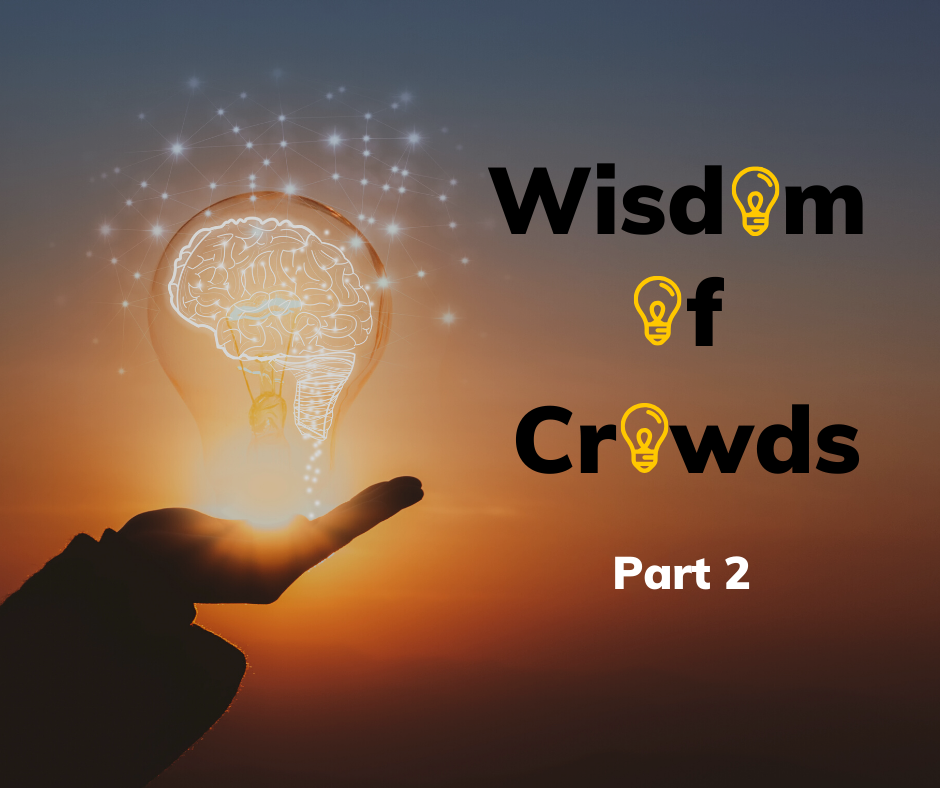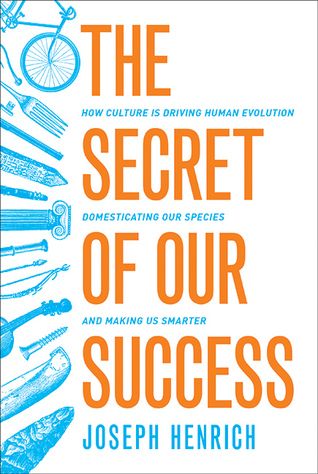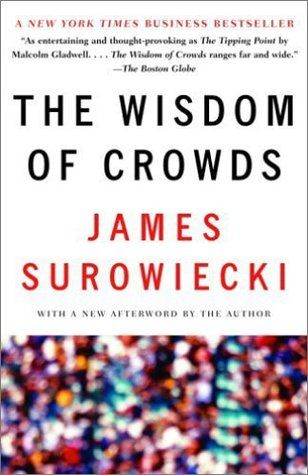
This is a WIP article, part of our premium content for WIP members. Open for everyone thanks to the WIP members generous contributions.
WISDOM OF CROWDS, part 2.
The first part can be found here.
At the Warp Institute we want the future to come faster. That is our mission, because we are convinced that the future will be better than the present, and very much better than the past.
To show that the future is bright, let us look at two points in human history.
When humanity took off
Around a campfire a hundred thousand years ago, a group of sapiens of the genus Homo sat. They had obviously learned to control fire, and had some simple stone axes as tools, but otherwise, they and their relatives had not done much in the over two million years they existed on the planet. They could talk to each other, had no clothes on their bodies, no boats, could not fish, did not sew, did not grow food and had no domesticated animals.
Yet this particular species, Sapiens, within a hundred thousand years, would take full control of the planet, and even leave it and take a step out onto another celestial body.
If the progress had continued at the same rate as the first two million years for Homo, or at the same rate as the first hundred and fifty thousand years for Sapiens, this would not have happened. They, we, would probably still be sitting there by the campfire.
So, what happened?
It was not a physical change. Anatomically those humans were the same as we are now.
The acceleration of human development began a hundred of thousand years ago and has accelerated ever since. At first a slow acceleration, but then about three hundred years ago we pushed the petal to the metal and more has happened in the last three hundred years than in the three hundred thousand years before that.
The reason for the acceleration a hundred thousand years ago and three hundred years ago is the same.
The secret to our success
Joseph Henrich is a professor of Human Evolutionary Biology at Harvard and Head of the Department with the same name. In his book The Secret of Our Success, he shows how our collective intelligence is behind humanity’s progress. That we learn from each other and build our knowledge on the knowledge of others and, all the time as a collective, become smarter.

When we couldn’t share our knowledge between groups of humans, the knowledge constantly died out. One step forward, one step back. For example, if someone makes a better stone ax. This person maybe teaches others in the same group, but if something happens to this group of people without the knowledge being spread to other groups, it will die out. And if that happened, there was no way to find the knowledge again. It was gone, until someone invented it again. No Google to search, not even Altavista.
That must mean that this situation changed a hundred thousand years ago. Otherwise, progress would still be almost at a standstill. The only reasonable cause for the change is that enough people lived close enough to each other for a period, so that knowledge could be spread between different groups.
That theory was tested by three other researchers, Mark Thomas, Adam Powell and Stephen Shennan, in an article published in Science. They note that the population density in eastern Africa, ninety to one hundred thousand years ago, reached the level required to confirm Henrich’s theory.
For the first time, ideas began to spread among enough people that more knowledge would survive than die out. Knowledge began to accumulate. Humanity received a collective intelligence.
Does that mean that the strong acceleration of the last three hundred years is also due to increased spread of ideas and knowledge?
Democracy is humanity’s best innovation
That’s exactly what happened. In the 1600s and 1700s, we began to establish democracy and freedom of expression (and a scientific revolution with a method to evaluate ideas.)
I showed in the last WIP article the tremendous collective intelligence that comes from independent thinking individuals, and that was what we got back then.
“Paradoxically, the best way for a group to be smart is for each person in it to think and act independently.”
James Surowiecki in The Wisdom of Crowds.

More people’s ideas were allowed. We tested more ways to do things. We learned from each other, we rejected bad ideas and embraced those that were a little bit better. We also now had the printing press where we could store, mass-produce and spread ideas cheaply.
This wealth of ideas led to even better, cheaper and faster ways to store and spread ideas. Telegraph, telephone, phonograph, radio, television, fax, mobile telephony, computers and internet.

We are now at a time when half of humanity lives in some form of democracy and half of humanity has access to the internet. The opportunity to spread ideas and build new knowledge on old knowledge is better than ever before.
With each passing year, the opportunity becomes even greater, as more people leave poverty, more people get basic rights, more people get access to school and the opportunity to spread their ideas on the internet.
The formula for humanity shows that the future is bright.
The opportunity to think freely and access to technology, that is humanity’s simple, yet so very powerful formula.
That is why the probability of an even better future is greater than ever. For a hundred thousand years we have given ourselves greater right to think freely. To have more, better, and cheaper ways to spread ideas through technology. There is no reasonable reason why this development would stop. On the contrary, it is most likely that it will go faster.
That makes it reasonable that the future will be bright.
However, it does not happen through magic, not automatically.
We must constantly give ourselves more freedom and improve our technology. Half of the world’s population still does not live in a democracy. Half of all people do not have internet access. It is our job to help everyone get that opportunity.
Then we can make the future come much faster.
This is a WIP article, part of our premium content for WIP members. Open for everyone thanks to the WIP members generous contributions.





